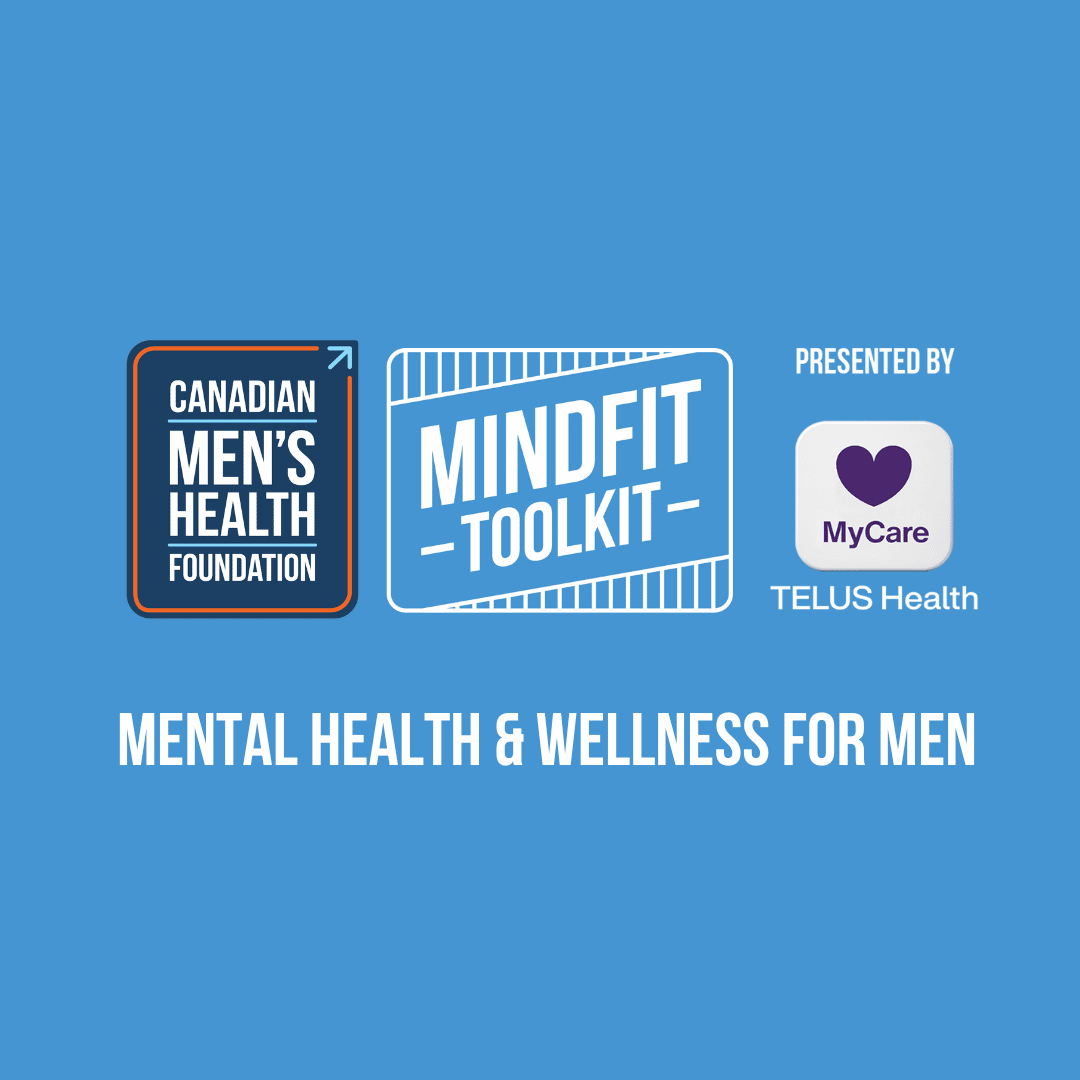Whether it’s around your buddies, on your sports teams, or even at home, guys sometimes push down their feelings. It can seem like the default to just “suck it up” when something is wrong. But being strong doesn’t mean keeping your struggles to yourself. Strength and vulnerability aren’t mutually exclusive—more than that, the two can be a powerful combo.
In Episode 11 of the Don’t Change Much Podcast, guest host Buzz Bishop is joined by former CFL All-Star and Grey Cup Champion Shea Emry and Dr. Matthew Chow, a clinical specialist in mental health. They discuss how showing vulnerability can demonstrate strength and share their own experiences with mental health.
“Being vulnerable doesn’t mean you’re not capable. Some of the strongest, most powerful, most influential people I’ve ever met in my life are also people that have had vulnerability in their life,” says Dr. Chow.
“As a doctor, I’m seeing more and more men and boys reaching out to get help because of people like Shea. Because they see them on TV, they hear them in a podcast, and they hear that a big strong guy like that can be vulnerable.”
Taking the first steps
We all have those moments when something isn’t feeling right, and we have to take a step back to assess what’s going on. For Shea, it was a conversation with someone close to him which helped him realize he wanted things to change.
“That’s where it all started, was a conversation, a question. Someone asked me, ‘What do you like to do? What are you passionate about?’ I had no answer, and I didn’t know what was next. And that was really frightening. And I wanted to figure that out.”
Dr. Chow shared a similar experience. “I remember in my own counselling therapy experience, the first step for me was first admitting that I had a problem…The next step, which seemed (like) such a big deal at that time, especially as a medical person, was just reaching out to find out what help was out there.”
While the first steps may be tough—for Shea, his first time talking to someone was “really scary”—things get easier as you go along. “I started to continue to go, and it got easier, and I got stronger,” Shea said.
Ways to support your mental health
When you’re going through tough times, getting the support you need for your mental health doesn’t necessarily have to mean sitting on a couch and getting into examining every detail of your life with a therapist. Whether the support comes in the form of a life coach, a counsellor, or a men’s group, for example, it’s about finding a process that works for you.
Dr. Chow explains that “taking all that suffering and angst inside your headspace and revealing it to another person who can bounce these ideas off, who can help you see your blind spots (can) ultimately help you get to a better outcome and to be the best possible you.”
So where and how can you get the support you need? Give one, or some, of the following a go:
Head to a men’s group
You might feel more comfortable talking with other guys about what’s troubling you. Those chances to connect can be informal, like when you’re hanging out with other men working on a project together, or more formal, depending on what you need.
“You’re up on a hike, the oxygen’s thin, your heart rate is up, and then you suddenly have an epiphany. You’re talking to the guy next to you, and then you reveal some vulnerability there on the top of a mountain,” Dr. Chow said.
The conversations you have while you’re getting things done (hiking, building a fence, etc.) can also have a huge impact. Connection is the key.
“When men are busy, they’re not thinking about the conformities; they’re not thinking about what the stigma is. They’re like, oh, I’m building this little deck, or I’m building this bonfire. We’re doing an axe-throwing experience, and this guy is talking over here about something. Oh, that’s cool. Oh yeah, I have that too,” Shea said.
There are different groups out there, virtual and in-person, where you can meet with other men to work through what’s on your mind and connect with new people, including:
- Men’s Shed: Activity-based, peer-led network for men to socialize, whether it’s woodworking workshops or watching a playoff game together.
- Canadian Centre for Men and Families (CCMF) Men’s Support Group: Online, weekly, nationwide men’s support group. They provide a space for men to come together to share feelings and personal stories and to be accepted free from judgment.
- DUDE’s Club: Focusing on Indigenous men’s wellness, they help to build solidarity and brotherhood, enabling men to regain a sense of pride and purpose in their life.”
- Anxiety Canada’s MindShift App: It offers support for anxiety and a peer-to-peer community.
- Do More Agricultural Foundation – Talk it Out: They offer a once-a-month online live session for help with an array of mental health issues for those who work in the agricultural industry.
Get active
Exercise can also be a great way to support your mental well-being. Moving your body has some immediate positive effects; it can help you feel less anxious, improve your mood and help with focus, among other things.
“Getting involved in strenuous physical activity is excellent. Excellent for your mental health. Essential for your mental health,” said Dr. Chow.
And, importantly, exercise can give us some much-needed time away from our screens.
“When we’re sitting around being sedentary, scrolling on our phones all the time, our mental health actually deteriorates. It’s the stuff from the internet that makes our mental health deteriorate. But it’s also just the action of sitting around which turns out is profoundly negative to our health,” Dr. Chow shared.
No matter where you’re at with your fitness, there are lots of ways to get moving. Get started by going for a walk. Try a bodyweight exercise routine. Discover a workout app that matches your level of fitness. Consistency should be the goal here.
Give counselling a try, in-person or virtually
Address your mental health concerns like you would your physical health. A mental health professional can help you build coping skills to manage emotions or stress.
Virtual appointments let you choose a space that’s comfortable for you. No long commutes, no parking nightmares, or concerns about privacy.
Ready to give it a try? TELUS Health MyCare is offering virtual appointments with mental health professionals through Canadian Men’s Health Foundation’s MindFit Toolkit—get a special offer on up to three virtual sessions before May 9, 2023. You may even be eligible to receive counselling sessions at no cost.
Unsure about counselling? Here’s what you need to know.
What are some ways you support your mental health? Let us know in the comments!
Not Feeling Like Yourself?
Tackle chronic stress, anxiety and depression with MindFit Toolkit. Access free mental health tools designed for men.





Let’s Talk!
Did you enjoy this article? Let us know in the comments.
0 Comments